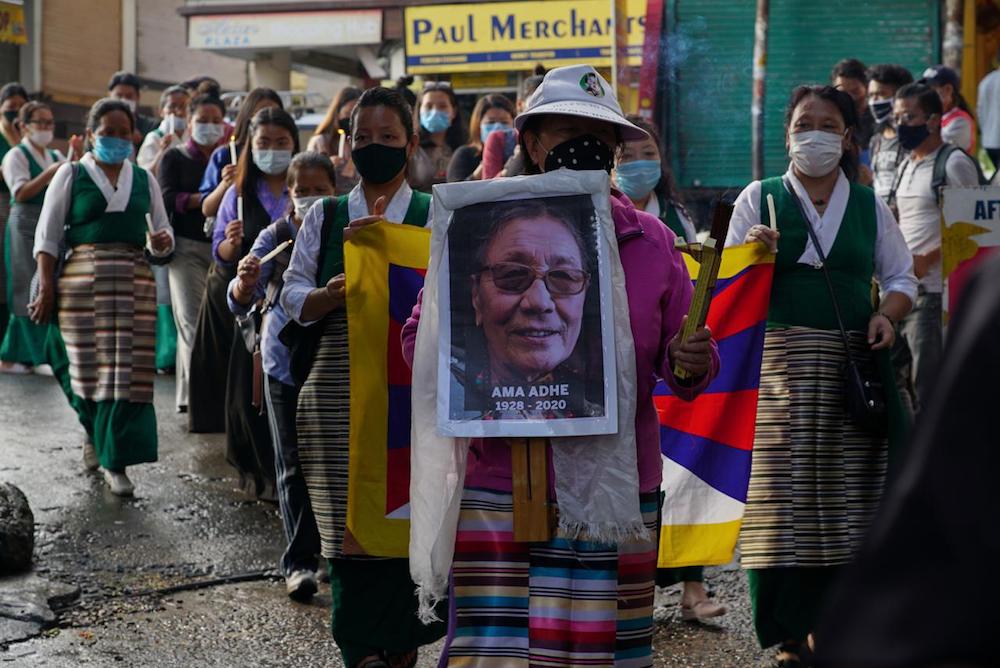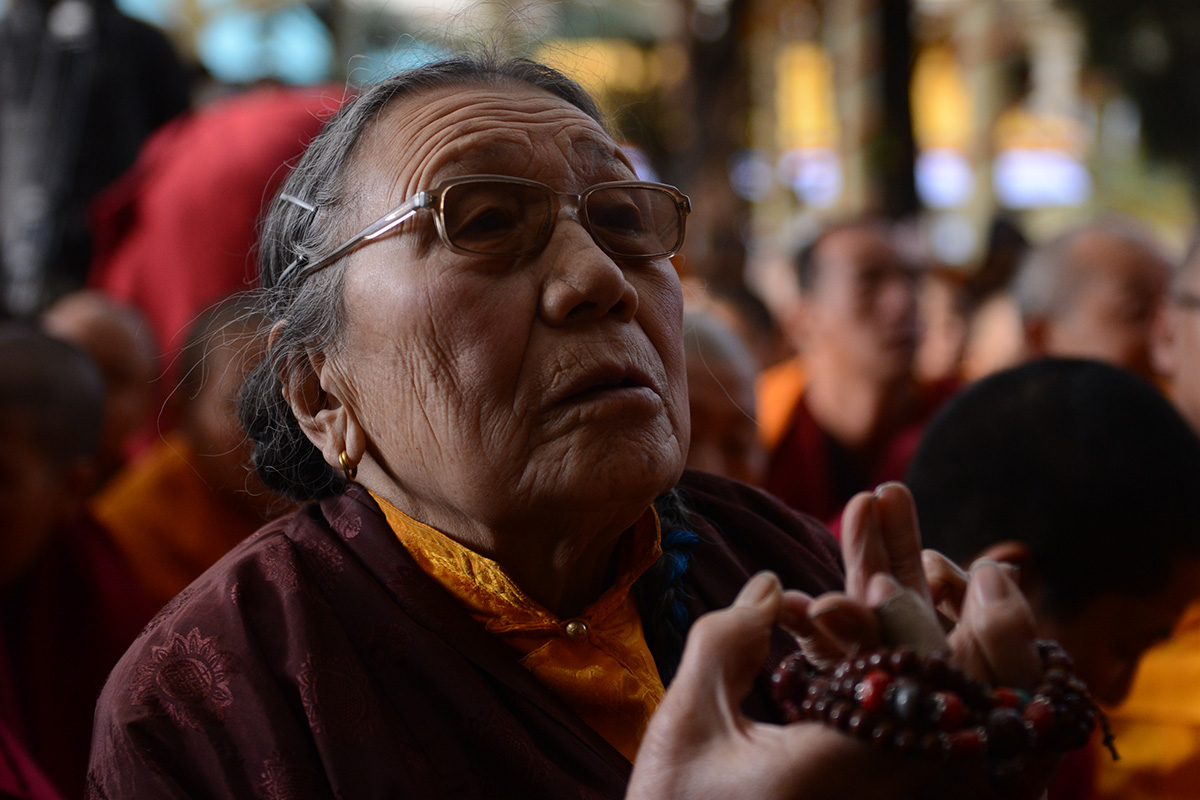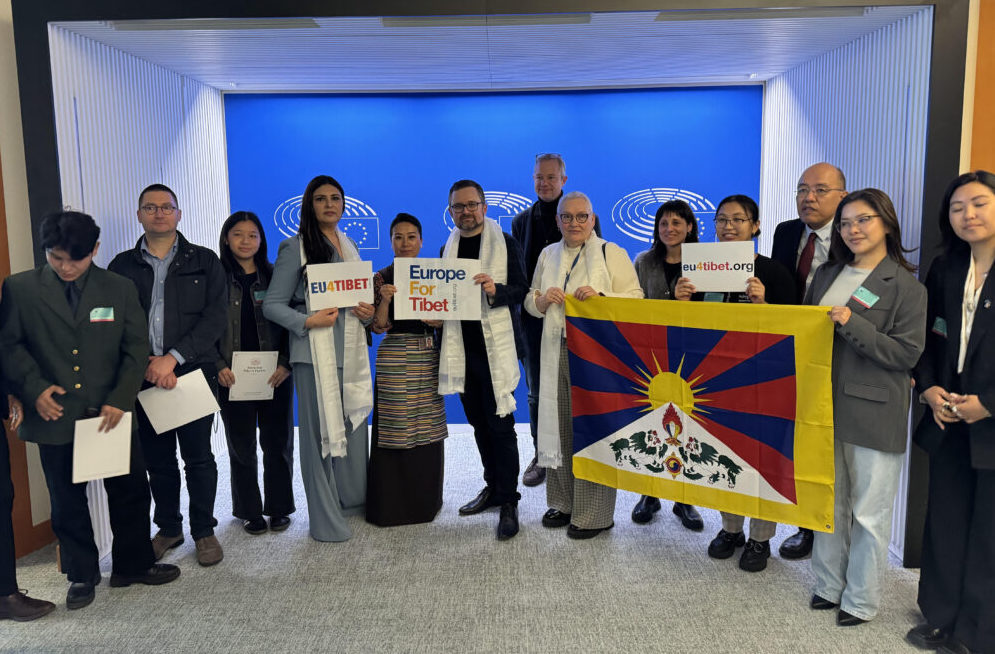By Choekyi Lhamo
DHARAMSHALA, July 3: Former Political Prisoner and well known spokesperson for Chinese atrocities in Tibet, Adhe Tapontsang, 88, passed away in Dharamshala on Monday. Activist groups, Students for a Free Tibet and Tibetan Women’s Association (TWA) held a candlelight vigil at Mcleod Ganj in remembrance of her legacy and role in the Tibetan struggle.
Rinzin Choedon, National Director of SFT-India, told Phayul at the vigil site, “Today is indeed a very sad day for all the Tibetans around the world because Ama Adhe has been a pillar of inspiration and embodiment of resistance to all of us . . . Ama Adhe is also an inspiration to me and many other Tibetan women in the movement. The vigil is to highlight her legacy and through her story, we also want to bring the issue of other political prisoners in Tibet on the forefront.”

She was born in Nyarong, Kham in 1932, and spent 27 years in a Changshita prison in China for taking part in the Tibetan resistance against the Chinese onslaught on the Tibetan people in the 1950s. She was one of the few women who survived the prison system where prisoners were starved to death.
After her husband was poisoned by the Chinese, she continued to participate in the resistance by encouraging Tibetan women to partake in the struggle. She also inspired women to help Tibetan men fighting against the Chinese military with food supplies and other provisions. She later joined the Khampa resistance and was arrested and separated from her two children in 1958. After serving 27 years in prison, she was released after the Chinese government led by Deng Xiaoping pardoned the political prisoners in 1985.
She fled from Tibet to India in 1987 and lived in Dharamshala ever since. In exile, she became a spokesperson for accounts of Chinese atrocities in Tibet and stories of her life under Chinese occupation; actively engaging with listeners to communicate the political struggle through her experience. Her autobiography Ama Adhe: The Voice that Remembers: The Heroic Story of a Woman’s Fight to Free Tibet, published in 1997 and co-written with Joy Blakeslee tells her life story through a detailed account of her ordeal.










